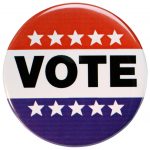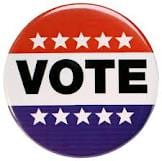 A federal district judge on Friday, Oct. 10, struck down Texas’ voter photo identification law, just 10 days before early voting in the state is to begin.
A federal district judge on Friday, Oct. 10, struck down Texas’ voter photo identification law, just 10 days before early voting in the state is to begin.
In her 140-plus-page decision, federal Judge Nelva Gonzales Ramos called the law “a poll tax” and “discriminatory” against African-Americans and Hispanics.
Texas Attorney General Greg Abbott immediately appealed the decision, urging the Fifth Circuit to “resolve this matter quickly to avoid voter confusion in the upcoming election,” said Lauren Bean, a spokeswoman for the AG’s office.
Explaining his appeal, Abbott said he believed the sudden ruling could confuse voters and burden election administrators. “Voters need certainty when they go to the polls and having this decision come out just 10 days before early voting begins injects uncertainty so I’m asking a court of appeals to decide this before early voting begins a week from Monday,” he told KXAN.
In the meantime, the law’s opponents praised the decision.
“Now we must redouble our efforts to restore the Voting Rights Act and to ensure that every LGBTQ voter gets the opportunity to vote at the upcoming election,” said the Rev. Darlene Nipper, deputy executive director of National LGBTQ Task Force.
Texas state. Sen. Wendy Davis, who is running against Abbott for governor, blasted Abbott’s appeal. “This is great news for democracy. I call on Attorney General Greg Abbott to drop his defense of a law that a court has now called a ‘poll tax’ and ‘discriminatory’ against African-Americans and Hispanics.”
U.S. Rep. Marc Veasey, D-Fort Worth and a plaintiff in the lawsuit, agreed. “Abbott should do what’s best for all Texans instead of pushing his discriminatory political agenda that would disenfranchise eligible voters.”
While the judge believes the law discriminates against African-Americans and Hispanics, the ruling impacts the transgender community as well.
According to the Williams Institute, a LGBT policy think tank, of the 25,000 eligible transgender voters in Texas, around 6,800, or 27%, do not have updated voter ID records.
Should the ruling be upheld, said Nell Gaither of the Trans Pride Initiative, “It makes it easier for transpeople to vote.” But she added that the transgender community still faces barriers most other voters do not.
Texas does not have a statewide law accommodating people who have transitioned from one gender to another; voters or would-be voters must rely on their county laws.
Chad Dunn, an attorney who represented the plaintiffs, told the Lone Star Project he believes Abbott will appeal to the Fifth Circuit and likely ask for the U.S. Supreme Court’s final say.
“To my knowledge, a law found to be intentionally discriminatory, after a full trial on the merits, has never been allowed to remain in effect,” Dunn said.
















